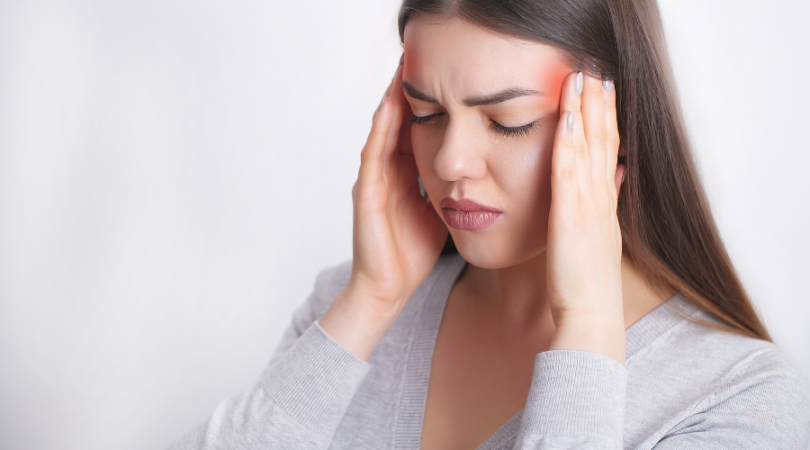Introduction
In today’s fast-paced world, stress has become a common experience for many individuals. While a certain level of stress can be beneficial, helping us to stay focused and motivated, chronic stress can have detrimental effects on physical health. According to the American Psychological Association (APA), nearly 80% of Americans report experiencing stress regularly. This article explores the impact of stress on physical health, the physiological mechanisms involved, and effective strategies to manage stress.
Understanding Stress
Stress is the body’s response to perceived threats or challenges, triggering a series of physiological and psychological reactions. When faced with stress, the body enters a “fight or flight” mode, releasing hormones such as adrenaline and cortisol. These hormones prepare the body to respond to danger by increasing heart rate, blood pressure, and energy levels. While this response is useful in short bursts, prolonged exposure to stress can lead to a range of health issues.
The Physiological Effects of Chronic Stress
Chronic stress can have significant adverse effects on various bodily systems. Here are some of the key ways stress impacts physical health:
Cardiovascular System
Chronic stress is closely linked to cardiovascular health. The prolonged release of stress hormones can lead to increased heart rate and blood pressure, contributing to the development of hypertension. According to the CDC, nearly half of adults in the U.S. have high blood pressure, a major risk factor for heart disease and stroke. A study published in the Journal of the American College of Cardiology found that individuals with high stress levels had a 50% higher risk of developing heart disease compared to those with lower stress levels.
Immune System
Stress can weaken the immune system, making individuals more susceptible to infections and illnesses. Research shows that chronic stress can reduce the production of immune cells, impairing the body’s ability to fight off pathogens. A study published in the journal Psychosomatic Medicine found that individuals experiencing high levels of stress were more likely to develop respiratory infections.
Digestive System
The digestive system is also affected by stress. Stress can lead to gastrointestinal issues such as irritable bowel syndrome (IBS), acid reflux, and ulcers. The American Psychological Association reports that stress can alter gut bacteria, leading to digestive disturbances. Additionally, stress can trigger unhealthy eating behaviors, such as overeating or consuming unhealthy foods, further exacerbating digestive problems.
Musculoskeletal System
Chronic stress can result in muscle tension and pain. When the body is under stress, muscles tend to tighten, leading to discomfort and pain in areas such as the neck, shoulders, and back. According to the National Institute of Health, stress-related muscle tension is a common cause of chronic pain conditions.
Endocrine System
Stress affects the endocrine system, which regulates hormones in the body. Prolonged stress can lead to hormonal imbalances, affecting metabolism, reproductive health, and overall energy levels. For example, chronic stress can lead to elevated cortisol levels, which are associated with weight gain, particularly in the abdominal area.
The Psychological Effects of Stress
In addition to its physical effects, stress can also have significant psychological impacts. Chronic stress is linked to mental health issues such as anxiety and depression. The National Institute of Mental Health reports that individuals experiencing high levels of stress are more likely to develop anxiety disorders and depressive symptoms.
Recognizing the Signs of Stress
Recognizing the signs of stress is crucial for effective management. Common physical and psychological symptoms of stress include:
- Physical Symptoms:
- Headaches
- Fatigue
- Muscle tension
- Sleep disturbances
- Changes in appetite
- Psychological Symptoms:
- Irritability
- Difficulty concentrating
- Feelings of overwhelm
- Anxiety or restlessness
If you notice these symptoms, it may be time to implement stress management strategies.
Effective Strategies for Managing Stress
Managing stress is essential for maintaining physical and mental health. Here are some effective strategies to help you cope with stress:
1. Practice Mindfulness and Meditation
Mindfulness and meditation are powerful tools for managing stress. These practices involve focusing on the present moment and cultivating awareness of thoughts and feelings without judgment. Research has shown that mindfulness can reduce stress and improve emotional well-being. A study published in JAMA Internal Medicine found that mindfulness meditation programs significantly reduced stress and anxiety levels.
2. Engage in Regular Physical Activity
Regular exercise is one of the most effective ways to manage stress. Physical activity releases endorphins, which are natural mood lifters. The CDC recommends at least 150 minutes of moderate-intensity aerobic activity each week. Activities such as walking, running, dancing, or yoga can help reduce stress and improve overall well-being.
3. Build a Support System
Having a strong support system is crucial for managing stress. Surround yourself with friends, family, and loved ones who provide encouragement and understanding. Engaging in social activities and maintaining connections can help combat feelings of loneliness and isolation.
4. Prioritize Sleep
Quality sleep is essential for stress management. Lack of sleep can exacerbate stress and negatively impact physical health. Aim for 7-9 hours of sleep each night and establish a consistent sleep routine. Create a sleep-friendly environment by keeping your bedroom dark, quiet, and cool.
5. Practice Relaxation Techniques
Incorporating relaxation techniques into your daily routine can help reduce stress levels. Consider trying:
Deep breathing exercises: Focus on slow, deep breaths to promote relaxation.
Progressive muscle relaxation: Tense and relax each muscle group to relieve tension.
Guided imagery: Visualize calming scenes to help reduce stress.
6. Limit Caffeine and Alcohol
While caffeine and alcohol may seem like quick fixes for stress, both can exacerbate anxiety and disrupt sleep. Consider limiting your intake of these substances and opting for herbal teas or other calming beverages instead.
7. Seek Professional Help
If stress becomes overwhelming or persists despite your efforts to manage it, consider seeking professional help. A mental health professional can provide support, coping strategies, and therapies to help you manage stress effectively.
Conclusion
Stress is an inevitable part of life, but its impact on physical health can be profound. Understanding the physiological and psychological effects of chronic stress is essential for recognizing the importance of stress management. By implementing effective strategies such as mindfulness, regular exercise, building a support system, and prioritizing sleep, individuals can take proactive steps toward reducing stress and improving overall health.
Remember, managing stress is not just about avoiding negative effects; it’s about fostering a healthier, more balanced life. Take the first step toward stress management today—your physical and mental health will thank you.







